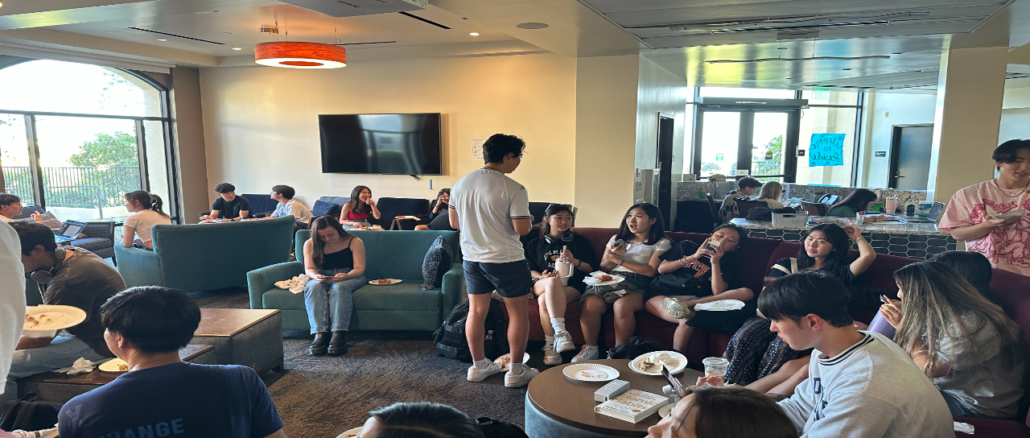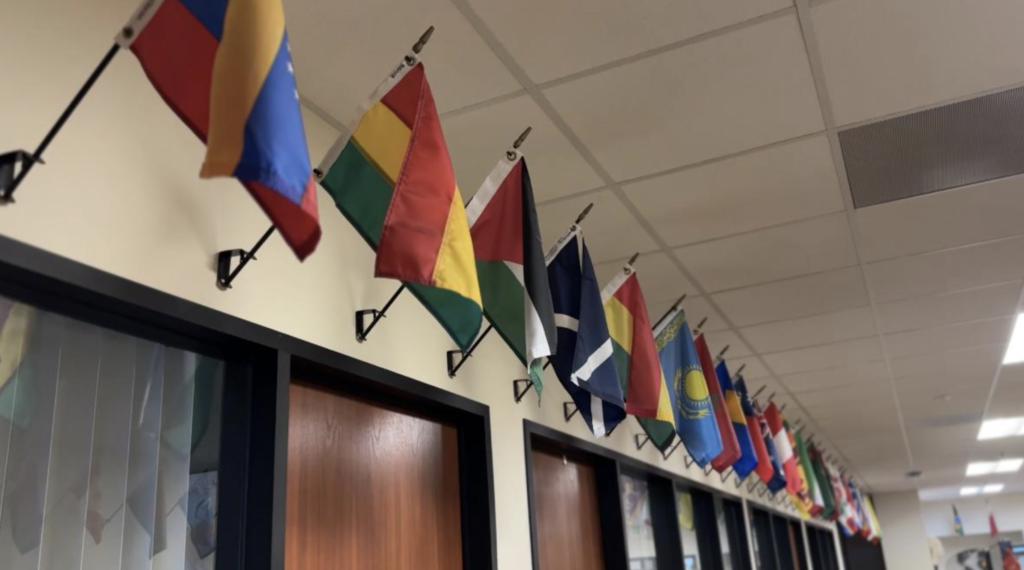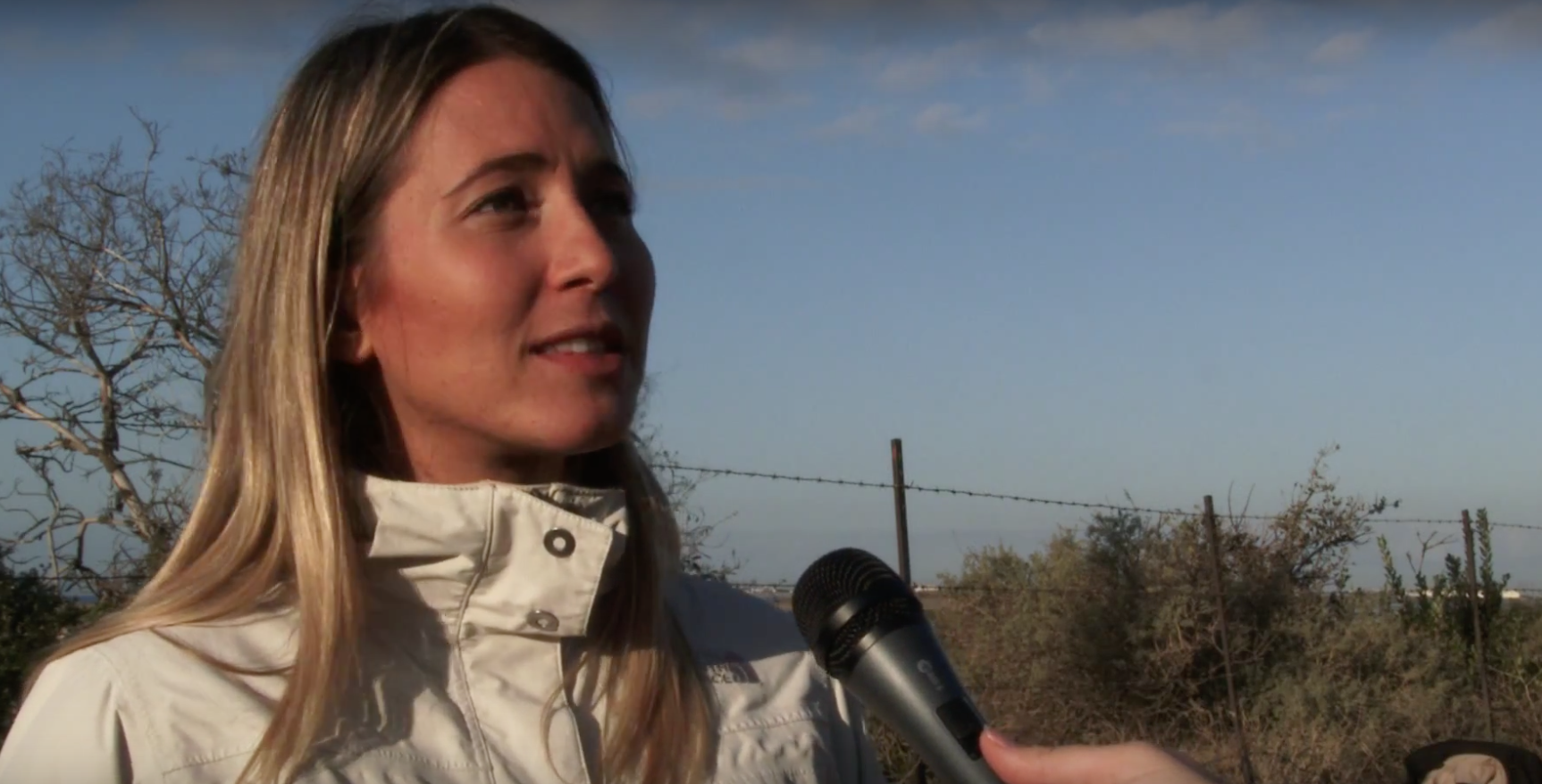
Pepperdine University administrators are working to recruit and retain international students after COVID-19 and U.S. immigration rules impacted numbers nationwide.
The international student body at Pepperdine rose from a low of 11% in Fall 2015 to a high of 13% in Fall 2019, before declining during the COVID pandemic to 9%, according to Pepperdine’s Office of Institutional Effectiveness.
“The international student is actually very important,” said Brooke O’Donnell, executive director of International Admission and Student Services. “They need extra support because there are more challenges.”
Pepperdine’s Office of International Student Services has adjusted its recruitment and public relations strategies to retain students.
Recruiting international students
O’Donnell has been recruiting international students for 18 years now. She worked in both big state schools and small private schools. She said she has seen a lot of changes in the higher education terrain.
O’Donnell said the coveted percentage of international students is around 10% for most institutions.
“Seaver college pre-pandemic was around 13%,” O’Donnell said. “So we did really well. 2018 was an all time high for us. We were so happy.”
Though only 9% of the Seaver student body hails from outside the U.S. as of Fall 2023, international students made up just shy of 13% of the application pool for this year, according to Pepperdine’s website. Among 13,516 total applicants, there were 1,740 international applicants. Just 922 enrolled.
To achieve the ideal proportion, Pepperdine international recruitment staff consider both academic success and how the international students will contribute to campus life.
“We don’t just admit people based on statistics,” O’Donnell said. “We are looking at the head and the heart. And also very strategically to diverse pepperdine. That includes where the students come from. We want to balance that.”
Scot McClamma, assistant director of international admissions and recruitment in the Office of International Student Services, was in Asia for less than a month and visited eight different locations, such as international schools, some local schools, universities and even college fairs. However, there are more things to be done.
“Pepperdine is in some countries and in some places it is well known,” McClamma said. “But in a lot of places, it is virtually kind of unknown so just being out there and being in front of students physically traveling there is helpful.”
O’Donnell said the community and relationships that Pepperdine builts and word-of-mouth are the most powerful strategies to attract international students.
“The best recruiters for international students are international students,” O’Donnell said.
COVID-19
In August 2020, there was a 91% decrease in new F-1 international student enrollment at U.S. schools, according to U.S. Immigration and Custom Enforcement.
COVID-19 made it harder for international students studying abroad, Mohammed Alaklabi, Jamilah Alaklabi and Amal Almuhlafi wrote in June 2021 study on the Impacts of COVID-19 on International Students in the U.S.
Online learning and virtual classes frustrated international students more because of the time differences, as they were in their home countries attending classes in the Pacific time zone. The travel restrictions and strict quarantine rules complicated life for foreign students. The economic downfall and spiking currency rates disadvantaged many international students.
Across higher education in the United States, there was a 43% decline in the enrollment of new international students and 90% of campuses reported that foreign students deferred attendance to a future semester in Fall 2022, Paloma Esquivel wrote in a November 2020 Los Angeles Times article.
Pepperdine’s international enrollments declined over the two years of COVID-19, from an all-time high of 13% to 9%, according to OIE data.
“COVID made it impossible for international students to physically be here,” O’Donnell said. “Because there were travel restrictions happening from other countries or there were big quarantine requirements that would prevent them from being in class.”
Pepperdine administrators focused on figuring out the best options for each student, O’Donnell said.
“They helped international students to take classes online,” O’Donnell said. “Even though a lot of schools discontinued that option, to make sure we did not lose our enrolled students.”
Pepperdine continues to work to increase the international student body.
International student enrollment is now bouncing back. Nationwide universities had a 4% annual increase in international students this fall, Collin Binkley and Philip Marcelo wrote in a November 2021 Los Angeles Times article.
America’s immigration laws enforcement
Prior to COVID-19, former President Donald J. Trump and his allies restricted immigration policies in the United States, limiting the entry and work-permit rules in ways that interrupted many international students’ experiences, Kevin A. Simauchi wrote in a December 2020 The Harvard Crimson article.
The policies confused the already difficult process of securing student visas, said Public Relations Professor Klive Oh, who was an international student from South Korea for both his master’s and doctoral programs.
“That was always an added layer of work that I had to put in as a student,” Oh said.
Trump’s immigration policy created a negative image of the United States that impacted the international student population across the country, Mingsi Song and Quan Li wrote in the October 2022 research article Political Shock and International Students: Estimating the “Trump Effect.”
“When headlines circulate around the world, people have the impression that the United States is not welcoming international students,” O’Donnell said. “The disinformation of the experience of international students because of headlines.”
Hannah Chung, a senior psychology major from South Korea, said a stronger support system would have made her decision to study abroad much easier.
“Because I do not have my immediate family here in the U.S. and it is just me traveling back and forth from country to country so I think that things make things a little bit more difficult,” Chung said.
The negative policy resulted in a 6.6% decrease in the number of enrolled international students from the 2016 to 2017 academic year across the nation, Song and Li wrote.
Despite these national declines, the number of international students at Seaver increased 3% from Fall 2015 to Fall 2018, peaking at 13%, according to OIE data.
The impact of Trump’s policies was less serious for Pepperdine. Still, O’Donnell said such news headlines still might influence students negatively.
“If international students don’t come to recruitment because of the headline, we are missing a lot of amazing students,” O’Donnell said.

Ranking matters
O’Donnell said international students especially look at the rankings to find out about Pepperdine. Pepperdine was a top 50 school in the U.S. News for the past few years. However, there was a change in how one top ranking site, U.S. News, calculated the rankings and now Pepperdine is No. 76, according to Pepperdine Graphic reporting. U.S. News eliminated ranking factors such as small class sizes.
O’Donnell said this drop will have an impact on prospective foreign students.
“In Korea, the name value of the school is first and foremost,” Oh said. “There is a great deal of importance that people put on merit and rankings. Whether that is superficial or not I think that is very much an important factor.”
Reasons students study abroad
International students said they cherished the experience of studying in the U.S.
Oh said that there was a clear motivation for him studying abroad.
“I just wanted to learn from the best,” Oh said. “That was my motivation.”
Minsuk Kuon, a first-year business administration major from South Korea, said that having a study-abroad experience makes him a competitive and distinctive individual.
“Studying in the U.S. is an attractive point for me,” Kuon said. “Basic students in Korea do not have enough experiences or funding problems to study abroad. So studying in the U.S. can be a good turning point in my life.”
Chung liked Pepperdine’s size in choosing to study here. “I really like how personal the Pepperdine was just because of small class sizes and I liked that I could form really strong connections and relationships with faculty as well,” Chung said. “And also the location was really pretty.”
Hyeonjeong Shin completed the reporting for this story in Jour 241 under the supervision of Dr. Christina Littlefield and Dr. Theresa de los Santos. Dr. Littlefield supervised the web version of the story.



